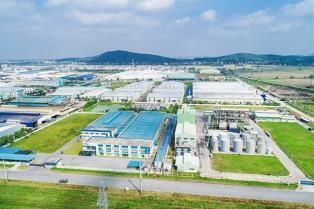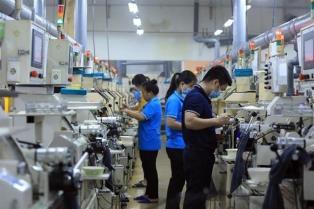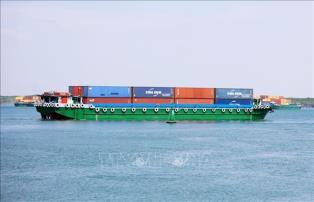Deputy Director of the Cần Thơ Department of Industry and Trade Lê Thành Thanh welcomed the proposals, saying they fit the city’s strategy for sustainable industry.

CẦN THƠ — Two major enterprises from the Republic of Korea (RoK) – Lotte Chilsung Beverage (part of Lotte Group) and SEP Cooperative – are planning to survey and invest in two large-scale projects in the Mekong Delta city of Cần Thơ.
They include a tropical fruit juice processing plant and a biofuel extraction plant using rice straw and other agricultural by-products, heard a working session on September 30 between the Korean business delegation and the Cần Thơ Department of Industry and Trade.
Lotte Chilsung Beverage, in partnership with the Vietnam-Asia Net Zero Alliance (VANZA), outlined plans for a juice factory targeting export markets such as the RoK, the EU, the US and Japan. With a capacity of 300,000–500,000 litres per day, the plant will require 600–1,200 tonnes of fruit daily, including pineapple, mango, passion fruit, pomelo, banana and dragon fruit. It will also produce Korean rice-based beverages.
The project requires 50–70 hectares for production, logistics, R&D and by-product treatment, with pulp to be reused for bio-oil, fertiliser and biomass power. Investment is estimated at US$120–180 million in the first phase, rising to $150–220 million at full scale. The facility could create up to 900 direct jobs and 2,500 indirect jobs, while contracting farmers and cooperatives certified to GlobalGAP, HACCP and ISO 22000 standards.
SEP Cooperative presented plans for a bio-diesel plant converting rice straw and other residues into renewable energy, following its successful Malaysian model using palm waste. A feasibility study is underway with the RoK's energy authority. The 30-hectare project aims to turn surplus straw – often burnt in fields – into fuel, alongside fruit peels, sugarcane bagasse and maize stalks.
Deputy Director of the Cần Thơ Department of Industry and Trade Lê Thành Thanh welcomed the proposals, saying they fit the city’s strategy for sustainable industry. With 510,000 hectares of rice land and some two tonnes of straw per hectare, most of which remains unused, Cần Thơ can supply abundant raw materials.
Industrial park officials offered sites such as Vĩnh Thanh, Sông Hậu 2 and Trần Đề, with the latter spanning100 hectares ready for lease at $85 per sq.m for 44 years. Sông Hậu Industrial Park also provides river transport advantages for fruit and straw.
The city Department of Agriculture and Environment confirmed that after feed and mushroom farming needs are met, 80 per cent of straw is still available, stressing the environmental and income benefits of converting it into biofuel.
The Korean companies will conduct site surveys in October before finalising decisions. Cần Thơ authorities pledged favourable conditions and legal support to accelerate implementation, aiming to boost the city’s economy and add value to Mekong Delta agriculture. — VNA/VNS




